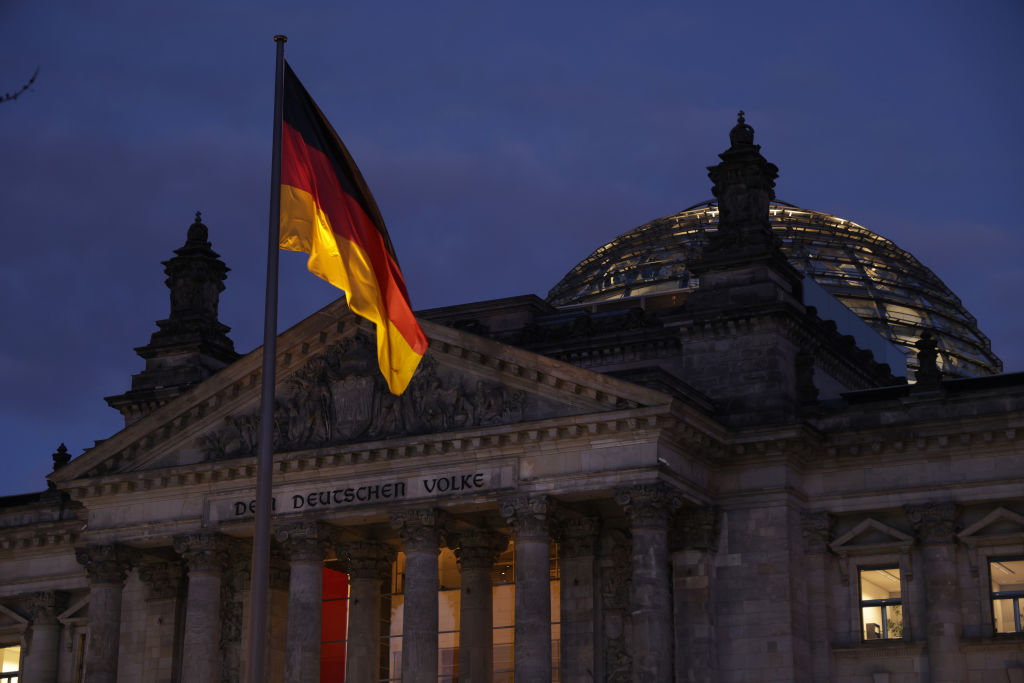It was one of the biggest police raids modern Germany has ever seen. Early Wednesday morning, 3,000 officers, among them members of special units sent by both state and federal police forces, searched 130 properties in 11 of 16 states. They arrested 25 people on suspicion of being members or supporters of a terrorist organisation plotting to overthrow the government. It’s the latest indication that Germany’s political underbelly contains a worrying element of extremists who are ready to act on their conspiracy theories.
The group is allegedly known as the ‘Patriotic Union’ with an inner circle known as the ‘Council’. In total, 52 men and women stand accused of being part of a plan developed since November 2021 that involved storming the German parliament, the Bundestag, and arresting politicians before installing their own regime.
Covid lockdowns, the war in Ukraine and the cost-of-living crisis have further fuelled pre-existing fears of state control in those susceptible to conspiracy theories.
‘The members of the organisation took into account that this plan can only be realised through the deployment of military means and violence against state representatives. This includes carrying out killings,’ the German attorney general stated.
This may sound like the fantasies of a handful of lunatics, but this latest spate of arrests hints at a major problem. With alleged links to Germany’s armed forces, police and politics, the group might well have had all the tools to act on such plans.
Rüdiger von P., a 69-year-old man who stands accused of being the leader of the military branch of the organisation, was a former paratrooper in the Bundeswehr, Germany’s armed forces. Several of his associates are also ex-service personnel.
His branch allegedly reached out to military and police units to recruit further members for the group. In the summer of 2022, four meetings took place in Baden-Württemberg in the south of the country. In November, Rüdiger von P’s group is said to have attempted to recruit police officers in northern Germany.
The terrorist group also tried to use military resources such as army barracks. In October 2022, they allegedly scouted out several Bundeswehr compounds in the south German states of Hesse, Bavaria and Baden-Württemberg for suitability to house militia troops following a successful coup d’etat.
In addition to its military connections, the group also seems to have had a number of political contacts. Birgit Malsack-Winkemann, a 58-year-old judge and former Alternative for Germany (AfD) member of the Bundestag is on the list of possible members.
If the coup had been successful, the 71-year-old aristocrat Prince Heinrich XIII of the House of Reuß would have taken over as Head of State, according to prosecutors. It’s tempting to dismiss him as a somewhat eccentric and ludicrous figure. A spokesperson of the House of Reuss denounced him a few months ago as a ‘confused’ man who had fallen victim to ‘conspiratorial misconceptions’.
But deranged or not, a man like Heinrich XIII should be taken seriously. As a member of an aristocratic family, he appeals to wide segments of a movement called Reichsbürger, who want to restore monarchical rule in Germany and believe that the ousting of Kaiser Wilhelm II at the end of World War One was illegitimate. It has often been a problem for Reichsbürger activists to find willing members of German aristocratic houses to act as figureheads for their desire to restore the constitution of the Second Reich. The leadership of someone like Heinrich XIII is crucial for their aims.
But Heinrich XIII brought other new dimensions to the network too. He stands accused of having helped fund the group as well as providing space in his castle in Thuringia for weapons and ammunition to be stored. He was arrested in his flat in Frankfurt and his castle searched as part of the Wednesday raid.
Heinrich’s partner, a 39-year-old Russian national called Vitalia B., was also arrested and stands accused of helping the group establish contact to Russia. Alongside her partner’s attempts to talk to Russian representatives in Germany, this seems to indicate the group hoped for support from Putin. Indeed, one of their new regime’s first tasks seems to have been to enter into negotiations with Russia.
German conspiracy theorists have been active for some time with other arrests earlier this year and Qanon cells have also long been established across the country. But the scale of the unprecedented police response this week gives an idea of the dimensions this danger is beginning to take.
The movement may well be small, splintered and, as of yet, badly organised. But substantial funding, connections to the armed forces and closer ties to Russia – if these things are proven – are worrying developments that give those who want to act on their militia fantasies traction. Covid lockdowns, the war in Ukraine and the cost-of-living crisis have further fuelled pre-existing fears of state control in those susceptible to conspiracy theories.
The arrests this week are a warning sign that Germany’s conspiracy theorists are beginning to get organised. The government will have to think hard about how to identify and root out such dangers without inadvertently confirming fears of state-control.







Comments